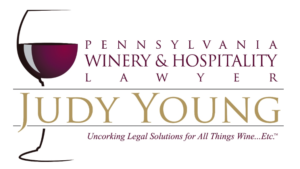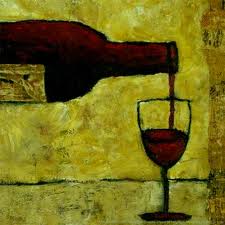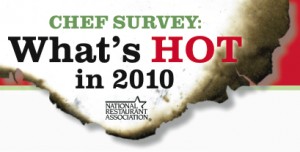HOW WILL YOUR PENNSYLVANIA WINERY OR WINE BASED BUSINESS TAKE SHAPE IN 2016?
 Happy New Year to all. I can’t believe another year has come and gone already. For myself, as the new year turns I’m taking a moment to reflect back on how well I achieved the goals I set for myself last year and to create new ones. Hence, it’s been a good time to dust off the old business plan to reflect on progress made or the lack thereof. In other words, I’m holding myself accountable for doing what I told myself I was going to do. So far, my persistence and diligence is bearing fruit for those new goals I’ve taken on. I’m also looking to scrap those goals that aren’t working.
Happy New Year to all. I can’t believe another year has come and gone already. For myself, as the new year turns I’m taking a moment to reflect back on how well I achieved the goals I set for myself last year and to create new ones. Hence, it’s been a good time to dust off the old business plan to reflect on progress made or the lack thereof. In other words, I’m holding myself accountable for doing what I told myself I was going to do. So far, my persistence and diligence is bearing fruit for those new goals I’ve taken on. I’m also looking to scrap those goals that aren’t working.
I know some of you are contemplating taking the plunge this year to establish your own winery or wine based business. If so, this is a great time to lay your foundation towards developing a successful winery or wine and hospitality based business by creating your business plan.
Creating a business plan forces you to focus on identifying your goals and objectives as well as how to set plans on how to reach them. In other words, where do you see your business 1 year from now, 3 years from now, or even 5 years from now? Who are your customers? What specific products will you offer? Have you identified your competition? What are your start up costs and sources of funds? What is your mission? Who is your target market? How will you manage the local, state, and federal regulations governing the business of alcohol? Exactly how will your business take shape in 2016?
These are just a few questions to think about when starting your own winery, wine or hospitality based business. As the beginning of the year unfolds, use this time to build your business plan and set achievable goals. Your business plan will keep you on the right track in 2016 and the years to follow.

 at the beginning of every year to discuss their desire to open their own winery, restaurant, or other wine based business. We typically discuss how to best proceed in their mission. I listen respectfully as they share their dreams and passions. We talk about the hard work, the diligence and the finanacial committment that will be necessary to fulfill their dreams. Some of these entrepreneurs to be, discover that they more romantic hobbyists than entrepreneur, abandoning the dream along the way. Others non-committers speak their dreams out loud, failing to act, while watching at a distance as others take their dreams and implement the very dream they thought they once had but for their own failure to act.
at the beginning of every year to discuss their desire to open their own winery, restaurant, or other wine based business. We typically discuss how to best proceed in their mission. I listen respectfully as they share their dreams and passions. We talk about the hard work, the diligence and the finanacial committment that will be necessary to fulfill their dreams. Some of these entrepreneurs to be, discover that they more romantic hobbyists than entrepreneur, abandoning the dream along the way. Others non-committers speak their dreams out loud, failing to act, while watching at a distance as others take their dreams and implement the very dream they thought they once had but for their own failure to act.  I am routinely approached by people who have an idea to open a new winery, restaurant, catering business or other wine and hospitality business. Many of these persons often consider entering their new business venture with a family member or friend.
I am routinely approached by people who have an idea to open a new winery, restaurant, catering business or other wine and hospitality business. Many of these persons often consider entering their new business venture with a family member or friend. catering, or wine based hospitality business is a critical step. Your corporation is responsible for the debts and liabilities of your wine or hospitality business shielding your personal assets separate from those of your business. But once the business formation process is complete, your job isn’t finished. You must ensure that your Corporation or LLC entity remains in compliance so that your “corporate veil” is not pierced, making you personally liable for the debts of your wine or hospitality business.
catering, or wine based hospitality business is a critical step. Your corporation is responsible for the debts and liabilities of your wine or hospitality business shielding your personal assets separate from those of your business. But once the business formation process is complete, your job isn’t finished. You must ensure that your Corporation or LLC entity remains in compliance so that your “corporate veil” is not pierced, making you personally liable for the debts of your wine or hospitality business. 
 It takes more than just your passion to succeed. You have to be well prepared to avoid making painful mistakes along the way. Because at the end of the day, diners vote with their forks. And…you want them to vote for you.
It takes more than just your passion to succeed. You have to be well prepared to avoid making painful mistakes along the way. Because at the end of the day, diners vote with their forks. And…you want them to vote for you.  already own your own restaurant and are looking to keep pace with what’s trending in the food industry? If so, this may be the right moment to act on your dreams or make some well needed changes.
already own your own restaurant and are looking to keep pace with what’s trending in the food industry? If so, this may be the right moment to act on your dreams or make some well needed changes. the restaurant you worked for months to open. Yes, dreams of owning your own winery, restaurant, or hospitality business can be realized even in today’s tough economy. Why? Because a new wealth economy will come by the growth of small businesses. Much of this growth engine will be fueled by new businesses, many of which will be in the wine and hospitality industry.
the restaurant you worked for months to open. Yes, dreams of owning your own winery, restaurant, or hospitality business can be realized even in today’s tough economy. Why? Because a new wealth economy will come by the growth of small businesses. Much of this growth engine will be fueled by new businesses, many of which will be in the wine and hospitality industry. franchise. One friend purchased a pizza franchise while the other purchased a computer repair franchise. Each is reaping the benefit of investing in an existing business model and brand for which the corporate name, logo, products, services, business and marketing processes are already in existence.
franchise. One friend purchased a pizza franchise while the other purchased a computer repair franchise. Each is reaping the benefit of investing in an existing business model and brand for which the corporate name, logo, products, services, business and marketing processes are already in existence.